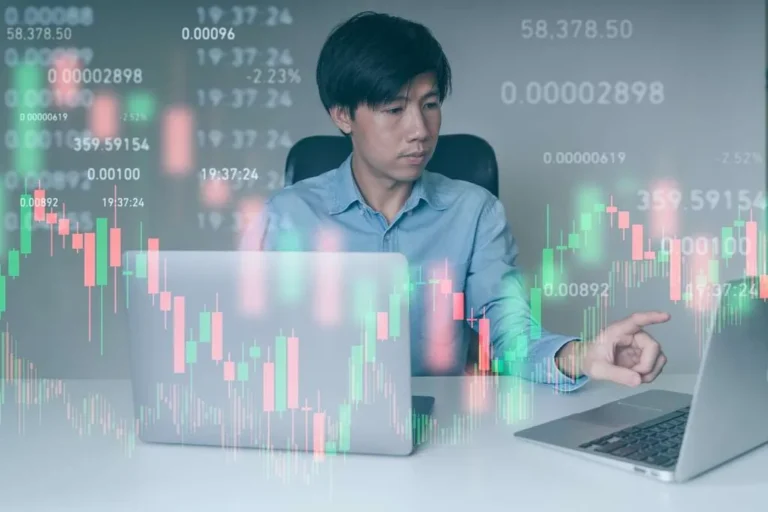Liquidity Provider vs Market Maker: What is The Difference
Content
Wash trading happens when an entity buys and sells the same (or similar) cryptocurrency to mislead the entire market. This form of market manipulation is also liquidity provider vs market maker known as “fake” liquidity because it creates a false pretense that a market is highly active. AlphaPoint helps exchanges integrate with multiple liquidity sources to avoid fragmented liquidity and make trading easier. Having consistent liquidity sources gives the crypto market the financial backing it needs to fight against volatility, regulatory changes, and market manipulation.
How Brokers and Liquidity Providers Work Together
Liquidity providers in these settings receive LP tokens representing their share of the pool, which they can use https://www.xcritical.com/ to claim interest earned from transactions. This decentralized approach offers low latency, efficient price aggregation, and anonymity in trades, underpinning the modern liquidity provision in financial markets. A crypto liquidity provider is an entity that offers a continuous supply of digital assets in cryptocurrency markets, enabling traders to buy and sell quickly at competitive prices.
Liquidity Provider vs Market Maker in 2024: What Is the Difference?
Liquidity solutions are essential to manage the relationship between brokers and traders. Having access to deep liquidity pools gives brokers the means to act in the best interest of traders and keep forex markets agile. These providers use cutting-edge technology to positively influence forex markets. Doing business with a low-tier liquidity provider can be disastrous since they don’t have enough cash on hand to influence high trading volumes. The decentralized nature of blockchain technology makes it possible for financial institutions to use smart contracts to gather precious assets and build deep liquidity pools. Understanding the inner workings of financial markets requires first grasping the underlying liquidity concept.
Types of cryptocurrency exchanges
This competition results in reduced costs for traders and investors, as tighter spreads mean the difference between the buying and selling prices is minimized. Liquidity providers create a two-way market by quoting bid and ask prices. The bid price represents the rate at which they are willing to buy a currency, while the ask price indicates the rate at which they are willing to sell. By providing these prices, LPs enable brokers, financial institutions, and other market participants to access competitive rates and initiate trades. With RPC’s expertise and guidance, clients can navigate the complexities of the financial markets with ease. In this sense, crypto liquidity providers allow buyers and sellers to trade their assets with each other.
Choosing the Right Forex Liquidity Provider
This means that they are required to always quote both a buy and sell price for a specific volume of standard lots at the same time. By doing so, they provide liquidity and allow buyers and sellers to execute trades efficiently. Institutional liquidity providers are specialized firms that offer liquidity to financial institutions, such as banks, hedge funds, and asset managers. They provide liquidity across multiple markets and asset classes and often have access to deep pools of liquidity. These tokens serve as a proof of the provider’s contribution, allowing them to reclaim their initial investment along with any accrued interest.
A core liquidity provider is an intermediary that trades significant quantities of assets to help ensure that market participants can consistently buy and sell assets when they wish. Liquidity providers perform important functions in the market such as encouraging price stability, limiting volatility, reducing spreads, and making trading more cost-effective. Banks, financial institutions, and trading firms are key players in providing liquidity to different parts of the financial markets. The importance of liquidity aggregators, often also called providers, is underscored in the crypto market where they facilitate trades for smaller brokers through Straight Through Processing (STP). These aggregators ensure market stability by balancing buy and sell volumes to find equilibrium. In the crypto market, just as in other financial markets, a lack of liquidity can lead to reduced volatility, price gaps, and unfavorable trading conditions like slippage and widened spreads.
It determines the activity, growth and profitability of the entire industry. Liquidity in forex also ensures that traders receive the best possible deals without having to wait or sacrifice their desired price quotes. Tamta is a content writer based in Georgia with five years of experience covering global financial and crypto markets for news outlets, blockchain companies, and crypto businesses. With a background in higher education and a personal interest in crypto investing, she specializes in breaking down complex concepts into easy-to-understand information for new crypto investors.
This list of market makers includes Nomura Securities, Flow Traders, and Optiver. Unofficial market makers are free to operate on order driven markets or, indeed, on the LSE. They do not have the obligation to always be making a two-way price, but they do not have the advantage that everyone must deal with them either.
Access to capital is crucial for traders and investors in the Forex market because it facilitates large trade sizes which could lead to larger returns. The Forex Broker Turnkey solution includes all the key components required for effective risk management in Forex brokerage firms, including a smart liquidity aggregator. This partnership helps to expand the broker’s capital base and allows them to offer bigger trade sizes and cater to institutional clients with significant investment needs.
Brokers are individuals or companies who represent traders to buy and sell assets. Think of them as intermediaries, facilitating transactions between traders and LPs. Without them, traders would encounter difficulty with transactions and the smooth flow of trade. They are regulated by financial regulatory bodies, there are over 100 regulatory bodies globally, these bodies have differing degrees of focus and authority.
- They create a market for securities by allowing buyers and sellers to trade at any time.
- Liquidity providers or market makers seek to avoid this by serving as intermediaries in the financial markets.
- Compound interest is calculated on the principal amount plus any accumulated interest.
- Liquidity providers are market participants, typically the largest banks or financial institutions.
- With headquarters in the UK and offices in Japan and the US, B2C2 is a global broker firm powering the future of crypto markets.
- Good liquidity is the key to a high turnover on your trading platform and the influx of quality clients.
This way, buyers and sellers aren’t waiting too long to complete their orders, and the market moves quickly. Discover key phases and strategies to master the Wyckoff method for better trading decisions. As a good example, the New York Stock Exchange (NYSE) distinguishes a category of market-making participants called “specialists”.

The foreign exchange market maker both buys foreign currency from clients and sells it to other clients. They derive income from the trading price differentials, helping the market by providing liquidity, reducing transaction costs, and facilitating trade. In DeFi, liquidity provision works by allowing users to deposit their assets into liquidity pools, which power decentralised exchanges and earn rewards for it.

Hence, liquidity providers are essential in maintaining the smooth functioning of all financial markets. A liquidity provider is an individual or entity that facilitates the buying and selling of assets in a financial market by providing liquidity. They play a crucial role in ensuring that there is enough supply and demand for assets, which helps to maintain stable prices and smooth trading. Liquidity providers can be individuals, market makers, or specialized firms that use various strategies to provide liquidity to the market. Banks, financial institutions, and principal trading firms (PTFs) all act as liquidity providers in today’s markets. The different business models and capabilities of these liquidity providers allow them to serve the market in different ways.
By now, you should have a good idea of the importance of crypto liquidity profiles. With that in mind, here is how you can choose the right crypto LP for your business needs. For example, crypto LPs can help form trading pairs (like BTC/USD, ETH/EUR) to improve market depth and liquidity.

